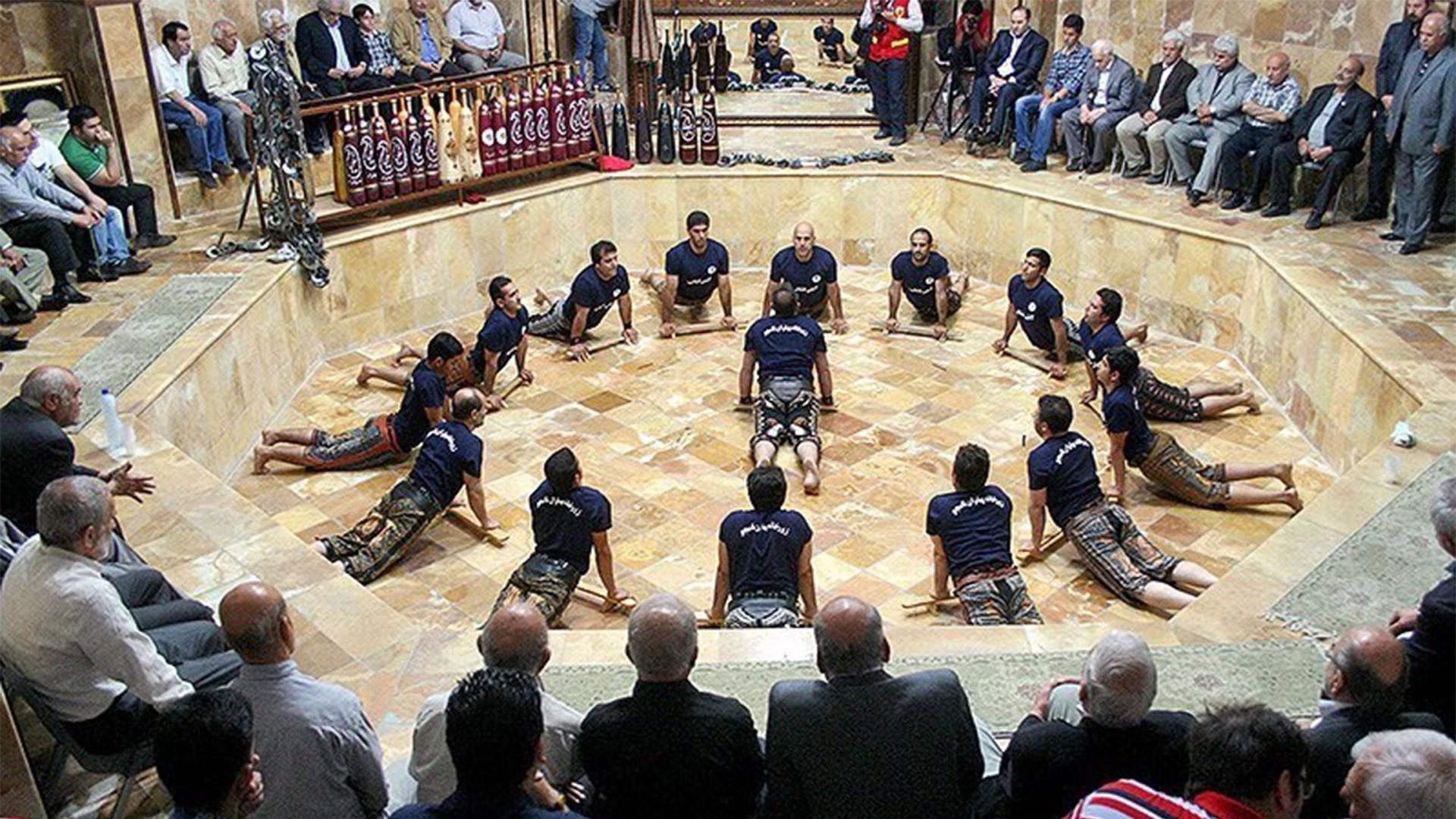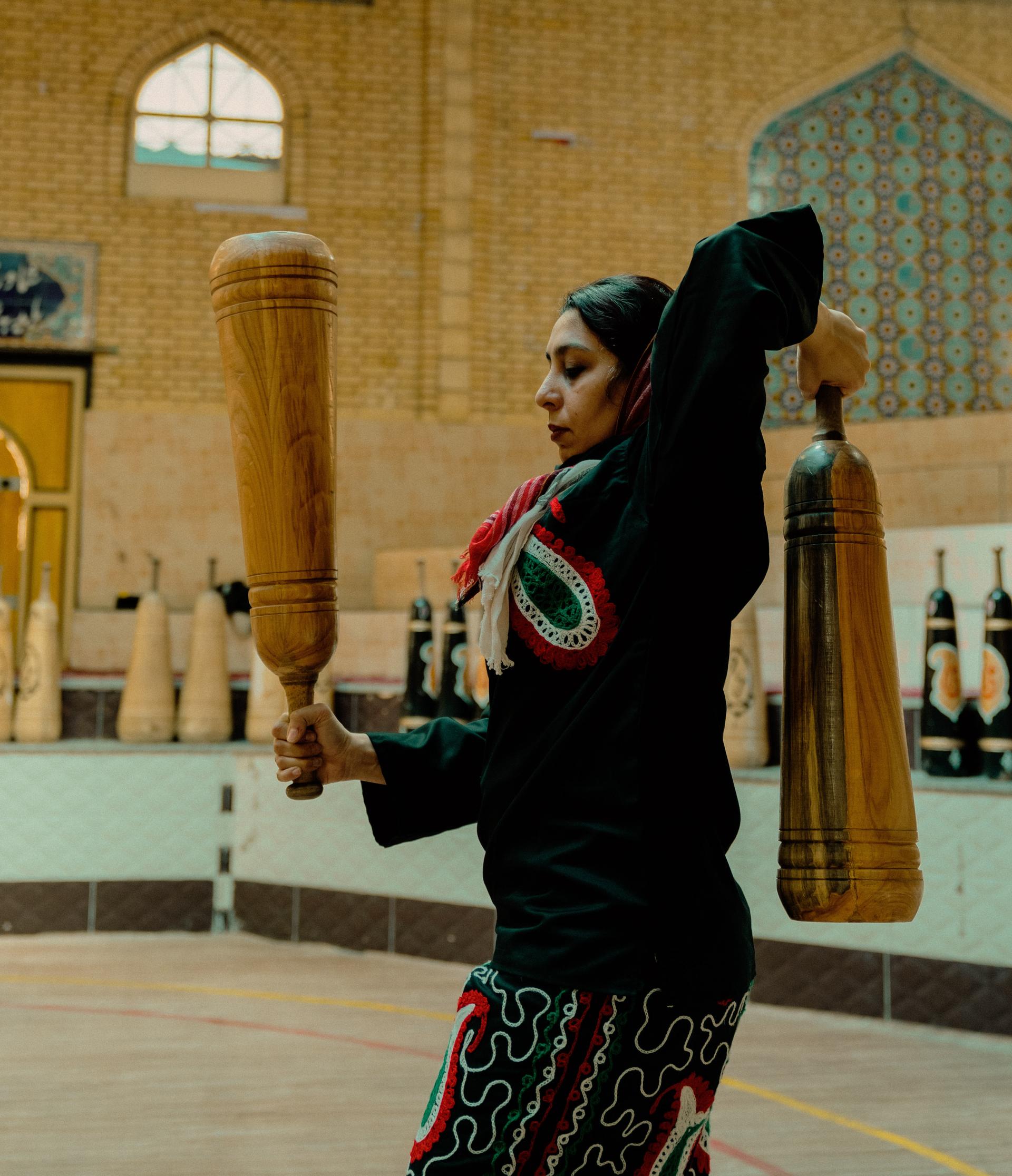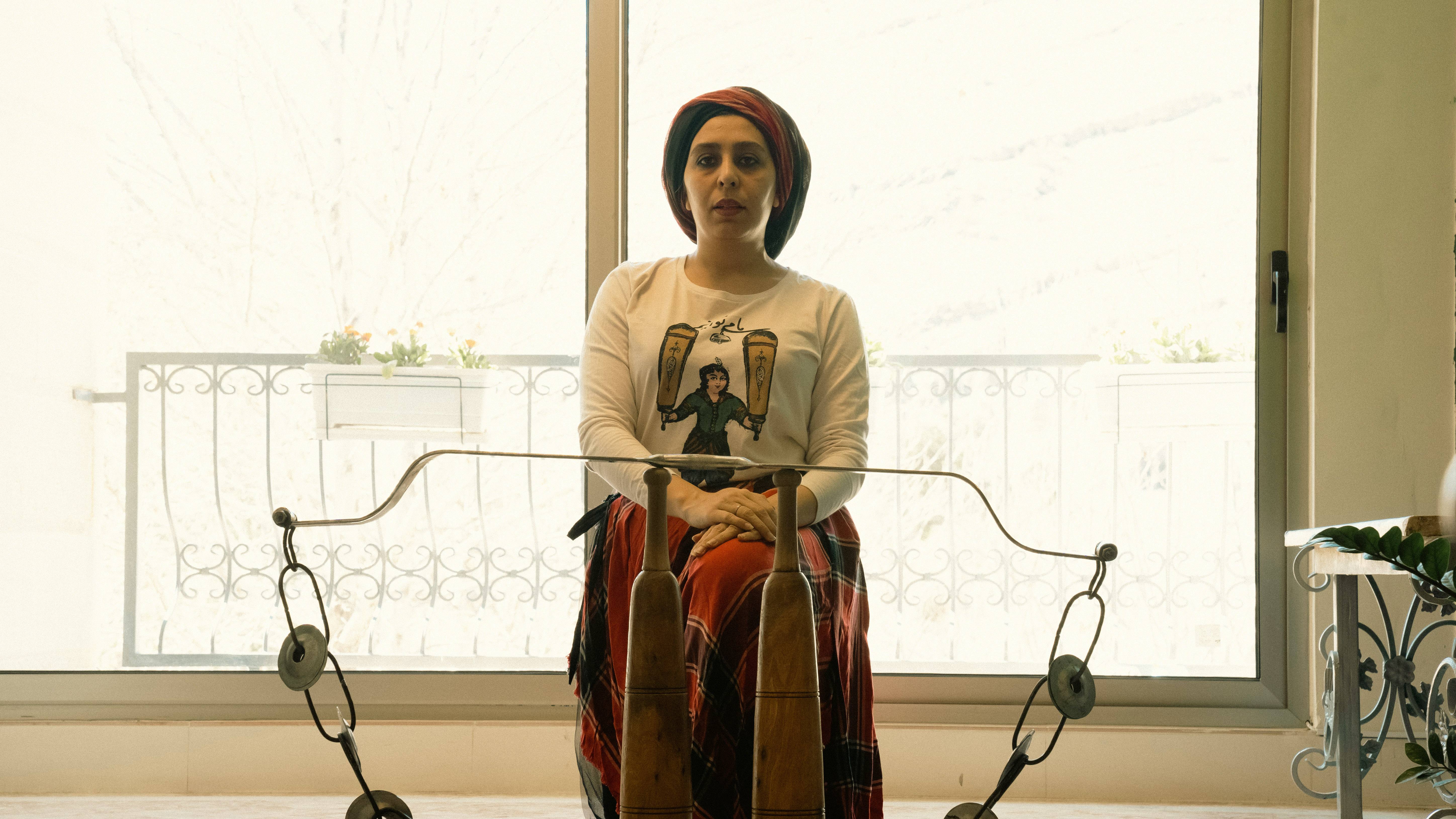A traditional Iranian sport has been closed off to women. One activist wants to change that.
When Rayeheh Mozafarian talks about Varzeshe Pahlavani, her eyes light up.
The 37-year-old lives in Tehran, Iran, where she practices the centuries-old sport. She is among the many Iranian women who want to participate officially but are not allowed to. So, she has embarked on a campaign to try and change that.
Varzeshe Pahlavani goes back more than 2,000 years, to what was then the Persian Empire.
“This art of Pahlavani runs like a thread throughout the history of Iran,” said Khashayar Azad, who is based in Sydney, Australia, and teaches the sport.
“There have been several waves of invasions and conquests and empires building and falling, etc.,” he said, “but one thing that they have had in common throughout the long history of Iran and Persian culture has been Pahlavani as an art form.”
Pahlavani combines sports with rhythmic music in a place called the zoorkhaneh, which literally translates to “house of strength.”

Athletes typically form a circle in a pit and they lift two large wooden clubs above their heads and twist them in circular motions.
The men then move an iron bow from side to side and perform what’s known as the shenow, similar to a push up.
According to Azad, step one to mastering Varzeshe Pahlavani is to let go of one’s ego.
That’s why, for example, the pit in the zoorkhaneh dips to a lower level than the ground — to emphasize modesty and humility.
“It is the art of developing and cultivating spiritual strength and physical strength [in] equal measure,” he said.
But what’s not always been equal in this tradition is the exclusion of women from practicing in the zoorkhaneh or mixing with the men.
“This is a national sport. That means it belongs to all Iranians, not just men.”
“This is a national sport,” Mozafarian said from her home in Tehran, “that means it belongs to all Iranians, not just men.”
She wants to help women gain access to the zoorkhaneh and be able to form teams of their own. But doing so has been a challenge.
Mozafarian said she has heard all kinds of excuses from officials and male athletes who want to keep women out of the sport.
“For example, one thing they tell me,” she said, “is that this is too tough for women and it’ll make their bodies too muscular and masculine.”
“I tell them to mind their own business,” she added. “I remind them of how women carry a baby for nine months and deliver it, no problem.”
She’s even met with religious officials and said that they are not, in fact, the ones standing in the way. They even issued a fatwa — or religious edict — leaving the door open to women’s participation.
The most intense pushback has come from a small, but vocal, group of purists.
Campaigning online
To work around the hurdles, Mozafarian has taken her campaign online, posting about Pahlavani on an Instagram page called Zan va Zoorkhaneh, or Woman and Zoorkhaneh.
She has received videos and pictures of women and girls playing the sport in their homes or in quiet corners at parks. What was surprising, she explained, was that many of them were getting training from their fathers, brothers or husbands, which shows that the men in their lives support their participation in the sport.

Mozafarian has also given interviews to the news media and shares some videos of women practicing Pahlavani at home.
“These photos of women holding the wooden clubs and practicing Pahlavani and playing the music that goes along with the sport,” she said, “all that is helping to break this long-held taboo on women’s participation.”
Even though Mozafarian hasn’t been able to persuade leaders to let women have their own teams and participate, she said the recent protests that began in September against restrictions on women’s freedoms in Iran have helped her cause.
“The protests are like a wake-up call,” she said, “a reminder to men that women in Iran will not stop demanding their rights, no matter how long it takes.
Related: TarantisT bandleader on protests in Iran: ‘This is not protest anymore. This is a revolution’
Our coverage reaches millions each week, but only a small fraction of listeners contribute to sustain our program. We still need 224 more people to donate $100 or $10/monthly to unlock our $67,000 match. Will you help us get there today?
